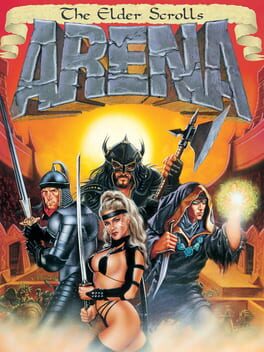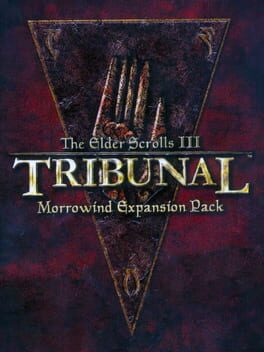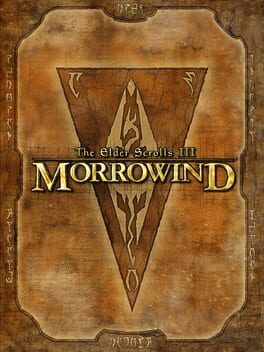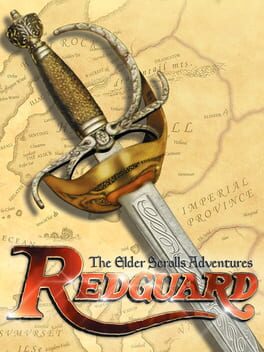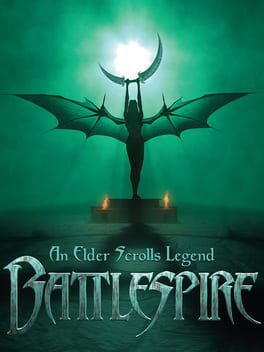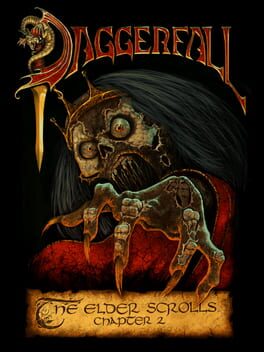

The Elder Scrolls - Arena is the first RPG fantasy game of the Elder Scrolls series. The game takes place on a planet called Nirn in the empire of Tamriel. The emperor of Tamriel, Uriel Septim, is planing to gather the whole Nirn under the imperial flag. He allies himself with the mage Jagar Tharn who is unfortunately intent on stealing the emperor's throne. Jagar Tharn imprisons the emperor in another dimension and locks the key inside a dungeon under the imperial city. Your job is to find all the pieces of the key, reassemble it, kill Jagger Tharn and free the emperor.
Also in series
Reviews View More
Bethesda Softworks tried their hand at RPGs with The Elder Scrolls: Arena, a first person adventure across a 'giant' landmass split into provinces. On the dungeon-crawler side, these serpentine mazes - complete with limited vision, frequent encounters and weak combat (utilizing mouse movement to perform weapon swings), at least feature two somewhat original concepts: Waterways (i.e. small paths traveling through rooms & under walls, sometimes used as shortcuts and other times as complex sub-mazes) and the Passwall ability (that enables one to destroy walls and therefore bypass locked doors for speedy dungeon clearing). Even more notable are the magic systems, namely a use-based means of leveling reminiscent of Final Fantasy II (governing not stats but the cost, efficacy and duration of spells); and above all the free-form craft of spellmaking, where players could not only combine and alter magic, but even adjust the degree in which those spells' properties improve. Their grind-driven exploits would become one of TES' constants.
The overworld side is vastly inferior. Procedural generation - in this case, underwhelms in terms of environments (composed of flatland and small props), action (surprise encounters only on rest) and discovery (the occasional random dungeon with weak treasure). Main quest playthroughs are better served by fast travel, while those interested in exploring won't find much to salvage (loot, enjoyment, etc.). Ditto for its many towns, whose differences exist only in the layouts, although the combo of a question-filled dialogue system, a limited map, and wandering NPCs gives their navigation a funny quality: As de facto foreigners who cannot easily spot landmarks, players must resort to asking locals for directions.
All in all, between an excessively long main route (given its rather simple plot & structure), pointless job quests (compared to the treasure found in main dungeons), and finicky controls that seem designed for 3-handed people, one suspects that its real achievements (embodied by its massive lorefest of a setting) are not gameplay-related, but rather in the technical, cosmetic and worldbuilding departments.
The overworld side is vastly inferior. Procedural generation - in this case, underwhelms in terms of environments (composed of flatland and small props), action (surprise encounters only on rest) and discovery (the occasional random dungeon with weak treasure). Main quest playthroughs are better served by fast travel, while those interested in exploring won't find much to salvage (loot, enjoyment, etc.). Ditto for its many towns, whose differences exist only in the layouts, although the combo of a question-filled dialogue system, a limited map, and wandering NPCs gives their navigation a funny quality: As de facto foreigners who cannot easily spot landmarks, players must resort to asking locals for directions.
All in all, between an excessively long main route (given its rather simple plot & structure), pointless job quests (compared to the treasure found in main dungeons), and finicky controls that seem designed for 3-handed people, one suspects that its real achievements (embodied by its massive lorefest of a setting) are not gameplay-related, but rather in the technical, cosmetic and worldbuilding departments.
